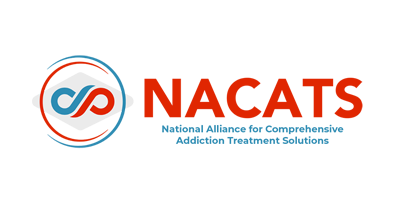Published in The Johnson City Press
Johnson City, Tennessee
December 8th, 2020
 Before the COVID-19 pandemic hit our communities, we were making strides in the fight against opioid use disorder. Deaths related to drug overdoses were on the decline, and more people were able to seek recovery through TennCare. However, that fragile progress was reversed when the pandemic changed how we do business, how we educate, and how we interact with one another.
Before the COVID-19 pandemic hit our communities, we were making strides in the fight against opioid use disorder. Deaths related to drug overdoses were on the decline, and more people were able to seek recovery through TennCare. However, that fragile progress was reversed when the pandemic changed how we do business, how we educate, and how we interact with one another.
Thanks to quick action from Gov. Bill Lee and TennCare, people in recovery were able to receive prescription refills more easily and innovations like telehealth became commonplace in recovery circles. As cases rise, I urge our community members to take this virus seriously, not just because of the risk it poses to your health and well-being, but the risk it poses to more vulnerable members of our community, including those who struggle with opioid use disorder.
Who are these vulnerable members of our community? They could be your neighbor, co-worker, or relative. They could be the young man who bags your groceries or the mom picking up her kids from practice. Due to the stigma of substance use disorders, opioids are a problem we’re all aware of in East Tennessee but rarely dwell on in public. Amid the COVID-19 pandemic, that means even our most casual interactions run the risk of exposing someone with underlying conditions to further harm.
In fact, a study by the National Institutes of Health recently showed that not only are people with substance use disorders more likely to experience adverse effects from COVID-19, but are more susceptible to catching the virus in the first place. That’s because people with opioid use disorder are more likely to struggle to gain access to care, may not have the food or housing resources to quarantine safely, may not have a stable income, or may struggle with social isolation that has unfortunately become an all too common occurrence this past year. If someone who struggles with opioid use disorder catches the virus, they likely also have underlying health conditions, including a weaker respiratory system, diabetes, hypertension, or other common conditions, that make the virus much more deadly.
Yet like much of our response to the opioid epidemic, we can help each other get through the dark winter months ahead by leaning on one another, supporting community organizations that care for our most vulnerable populations, reaching out to mental health resources like the Tennessee Crisis Line (855-CRISIS-1), and checking in on our neighbors who may need a friendly call. If you know someone in your life who may struggle with substance use disorder, you can encourage them to seek treatment with one of the many recovery organizations that are providing safe treatment via telehealth. You can follow the advice of Governor Lee and public health experts across the country to “do your part and stay apart” and wear a mask. And as we wait for a COVID-19 vaccine, you can go ahead and get your annual flu shot.
2020 has been a year marked by setbacks and loss, both financially and emotionally. Our hospital systems and health care workers, already working overtime to save people from overdose, are overextended by COVID-19 patients. While our most vulnerable members of society have borne the brunt of this crisis, that doesn’t mean we have to let them continue to suffer. Together, we can take small, simple actions to protect ourselves and each other from this virus, and in doing so protect those in our lives who struggle with opioid use disorder from even worse outcomes.
Lee Dilworth is the founder and CEO of ReVIDA Recovery® Centers, which promotes safe and healthy communities by empowering individuals to reclaim their lives from opioid use disorder.









